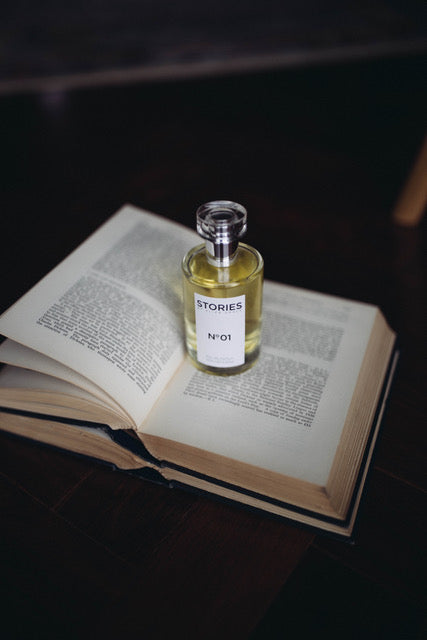In aid of World Alzheimer’s Month, we look at research into scent and memory and some aromas that might bring comfort.
I found the bunch of my birthday roses picked clean of petals this week. There was a tell-tale trail of blush pink petals that led out the kitchen door and over to our woodland. There, tucked between the plum trees, I found my daughter dressed in a wizard’s robe, stirring her potion in my best pot. Before I could bemoan the sad state of my bouquet, I caught the scent of rose on the wind. I remembered the perfume of my youth - spent Queen Elizabeth petals steeped in water for a week, and I backed down. My daughter asked whether I’d like to try her Rose Beauty Potion and I doused my neck and wrists.
Odour-associative Learning
This experience is known as odour-associative learning. It is the process by which we connect scent and memory. The smell of rose petal soup triggered my memory of gathering my father’s Queen Elizabeth petals for my perfumery needs. It stimulated a positive emotion connected to happy childhood summers.
Ongoing studies suggest a similar process could be used to facilitate connection to memory for people suffering from Alzheimer Disease. Alzheimer’s is caused by damage to nerve cells in the brain or peripheral nervous system. There is currently no cure, however, research into olfactory-related treatment may present some hope.
‘In light of the connection between scent and memory, it is worth exploring the impact that different scents might have.’
Early Signs
It was suggested in 2017 that losing one’s sense of smell can be an early sign of the disease. A study undertaken at the University of Chicago followed 3,000 older people and found that a simple smell test was able to identify those who were at a higher risk of getting dementia.
The nerve through which we smell is the olfactory nerve. It links the cells in the nose to our olfactory bulb at the base of the brain. This system relies on self-generating stem cells and researchers have suggested that a loss of smell is an early indicator that the brain is losing its ability to self-repair.
The study, which was published in the Journal of the American Geriatrics Society, found that those who could not identify at least four of the five scents in a simple smell test were twice as likely to have dementia five years later.
Whether this smell test gains traction or not, the results of the study confirm the strong connection between our sense of smell and our health and brain function.
The Smell of Danger
Research has been carried out using roundworms to show that it is possible to teach them to sniff danger. Professor Veena Prahlad from the University of Iowa used roundworms because they only have 302 neurons, compared to humans who have billions. It is therefore more straightforward to monitor their responses. The worms were divided into two groups. One was exposed to a lethal bacterium and the other a benign bacterium. The worms who were exposed to the lethal bacterium had a higher survival rate. Prahlad believes that the survival of the cells was down to the worms learning the smell and the associated threat. They were able to store the memory and keep those cells alive. If it was possible to stimulate this defence mechanism in humans, damaged cells could regenerate. The challenge is discovering the sensory triggers that would facilitate that.
Patients suffering from Alzheimer’s, the most common form of dementia, experience mood swings triggered by a range of different things. In light of the connection between scent and memory, it is worth exploring the impact that different scents might have.
Unique Olfactory Memory
Our olfactory memory is unique to us. Watery rose petals trigger positive memories for me because of my personal experiences. You may have no association with the scent or you may even have a negative connection. If you are walking the hard road of dementia alongside someone you love, here are a few scents you can try that may have a positive impact:
Chamomile: the dried flower of this plant is often infused in a tea and drunk as an aid to better sleep. The sweet, mild aroma of the flower is calming and soothing, whether you drink the tea or not.
Lavender: this herb is well known for its calming properties. Use a good quality essential oil in a diffuser or scent a pillow for a better night’s sleep.
Lemon: the scent of lemons is said to be uplifting. The essential oil is known to combat stress and bring about a sense of wellbeing. Slice a lemon into a glass of water for its fresh aroma.
Rosemary: this richly aromatic herb is reputed to boost memory function. For a beautifully scented room spray, infuse a few stems of rosemary and lavender in a pot of simmering water. Let it cool and decant into a spray bottle.
We would love to hear from you on this topic. Do you have a story about scent connected to a loved one’s dementia? Do you have any suggestions of ways smell can trigger positive moods for those suffering from Alzheimer’s? Please feel free to comment below or through our social media sites.



Leave a comment
This site is protected by hCaptcha and the hCaptcha Privacy Policy and Terms of Service apply.